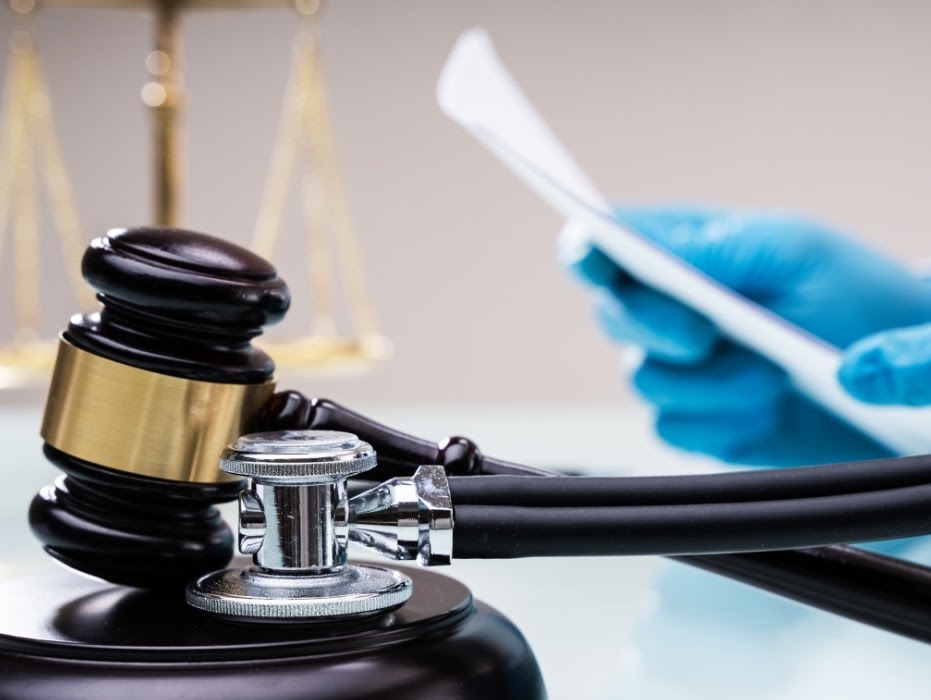

Expert testimony plays a crucial role in a medical malpractice case, providing valuable insight and expertise to help determine whether the standard of care was breached by the healthcare provider.
Expert Witness Qualifications An expert witness is typically a medical professional who has relevant experience and expertise in the specific area of medicine related to the case. They are required to have knowledge, skill, experience, training, or education that qualifies them as an expert.
Establishing Standard of Care One key role of expert testimony is to establish what the standard of care should have been in a particular situation. This involves comparing the actions of the healthcare provider in question to what a reasonable and competent provider would have done under similar circumstances.
Determining Breach of Duty Expert witnesses play a critical role in determining whether there was a breach of duty on the part of the healthcare provider. They evaluate whether the actions (or lack thereof) taken by the provider fell below the accepted standard of care.
Causation Analysis Experts also assist in analyzing causation, determining whether any negligence on the part of the healthcare provider directly caused harm or injury to the patient. This involves linking the breach of duty to the adverse outcome suffered by the patient.
Rebutting Defense Arguments In addition to supporting plaintiff's claims, expert testimony can also be used to rebut arguments presented by defense counsel. Experts may provide counterarguments or explain why alternative explanations put forth by defendants are not valid.
Educating Jury Experts help educate jurors who may not have medical backgrounds about complex medical issues involved in malpractice cases. They simplify technical information and provide clarity on matters such as treatment protocols, diagnostic procedures, and possible complications.
Building Credibility Finally, expert testimony helps build credibility for both parties involved in a medical malpractice case. A well-qualified expert can lend authority and credibility to their opinions and findings, which can significantly impact how their testimony is viewed by judges or jury members.
First, it is important to gather all relevant medical records related to your treatment. This includes doctor's notes, test results, medication prescriptions, and any other documentation that can provide insight into the care you received. Make sure to request copies of these records from all healthcare providers involved in your treatment.
Next, consider obtaining expert opinions from other medical professionals in the same field as the healthcare provider accused of malpractice. These experts can review your medical records and offer their professional opinion on whether there was a breach of the standard of care. Their testimony can be crucial in supporting your claim.
Additionally, gather any physical evidence that may support your case, such as photographs of injuries or complications resulting from the alleged malpractice. It is also important to keep a detailed journal documenting any symptoms or changes in your condition following the negligent treatment.
Furthermore, collect statements from witnesses who were present during your medical treatment and may have observed any mistakes or negligence on the part of the healthcare provider. Witness testimonies can provide valuable firsthand accounts that help strengthen your claim.
Lastly, it is advisable to consult with a medical malpractice lawyer who has experience handling cases similar to yours. A knowledgeable attorney can help you navigate the legal process, gather additional evidence if needed, and advocate on your behalf to seek compensation for damages caused by medical negligence.

Medical malpractice cases are unfortunately all too common in today's healthcare system.. These cases can arise when a healthcare provider fails to meet the standard of care expected in their profession, resulting in harm or injury to a patient.
Posted by on 2024-10-15

Medical malpractice is a serious issue that can have devastating consequences for patients and their families.. When a healthcare provider fails to provide the standard of care expected in their profession, it can result in injury or even death.
Posted by on 2024-10-15

Medical malpractice is a serious issue that affects countless individuals each year.. Whether it be a misdiagnosis, surgical error, medication mistake, or any other form of negligence by a healthcare provider, the consequences can be devastating for the victim and their loved ones.
Posted by on 2024-10-15

Are you facing a medical malpractice case and feeling overwhelmed by the complexities of the legal system?. The key to winning your case and getting the compensation you deserve is expert legal representation.
Posted by on 2024-10-15
Understanding the legal process of filing a medical malpractice lawsuit can be complex and overwhelming. It is crucial to have a good grasp of the steps involved in order to navigate the legal system effectively.
Consulting with a Medical Malpractice Lawyer Before initiating any legal action, it is essential to consult with a qualified medical malpractice lawyer. A lawyer specializing in this area will be able to assess your case, determine if you have a viable claim, and guide you through the entire process.
Gathering Evidence Once you have retained a medical malpractice lawyer, they will work with you to gather evidence to support your claim. This may include obtaining medical records, expert opinions, and other relevant documentation that demonstrate negligence on the part of the healthcare provider.
Negotiating Settlement or Filing a Lawsuit After gathering sufficient evidence, your lawyer may attempt to negotiate a settlement with the healthcare provider or their insurance company. If a settlement cannot be reached, your lawyer will then file a lawsuit on your behalf.
Discovery Process Once the lawsuit is filed, both parties will engage in the discovery process. This involves exchanging information and evidence related to the case. Depositions may also be taken from witnesses and experts.
Trial and Resolution If the case proceeds to trial, both parties will present their arguments and evidence before a judge or jury. The outcome of the trial will determine whether compensation will be awarded for damages incurred as a result of medical malpractice.


When dealing with a medical malpractice case, negotiating a fair settlement with the negligent healthcare provider is crucial. Here are some tips to help you navigate this process effectively.
Understand Your Rights and Options Before entering into negotiations with the healthcare provider, it is important to have a clear understanding of your rights as a patient and what options are available to you. Consult with a medical malpractice lawyer who can advise you on the best course of action based on your specific circumstances.
Gather Evidence To support your claim during negotiations, gather all relevant evidence related to the medical malpractice incident. This may include medical records, expert opinions, and any documentation of damages or injuries you have suffered as a result of the negligence. Having strong evidence will strengthen your position during settlement discussions.
Consider Mediation Mediation can be a helpful tool in resolving disputes between patients and healthcare providers. A neutral third party mediator can facilitate communication between both parties and help reach a mutually acceptable settlement agreement. Consider exploring mediation as an alternative dispute resolution method before proceeding to litigation.
Consult with Your Lawyer Throughout the negotiation process, it is essential to keep your medical malpractice lawyer informed and seek their guidance on how to proceed. Your lawyer will have experience in handling these types of cases and can provide valuable insight into what constitutes a fair settlement based on the specifics of your situation. Trust their expertise and rely on their advice when making decisions during negotiations.
First, gather all relevant medical records and documents related to your case. This includes doctor's notes, test results, prescriptions, and any other documentation that can support your claim of medical malpractice.
Next, consult with a qualified medical malpractice lawyer who specializes in these types of cases. They will be able to review your case, provide legal advice, and represent you in court if necessary. Make sure to choose a lawyer with experience in handling medical malpractice cases to ensure the best possible outcome.
Additionally, it is crucial to obtain expert opinions from healthcare professionals in the same field as the defendant. These experts can provide testimony on whether the standard of care was breached and if negligence occurred. Their opinions can significantly strengthen your case.
Furthermore, prepare yourself for what to expect during court proceedings. Understand the legal process involved in a medical malpractice case, including depositions, discovery, and trial procedures. Your lawyer will guide you through each step and help you navigate the complexities of the legal system.
Moreover, gather witness statements from anyone who may have witnessed the alleged malpractice or its effects on you. Eyewitness testimonies can be powerful evidence in court and help corroborate your version of events.
Lastly, maintain open communication with your lawyer throughout the entire process. Stay informed about updates on your case and follow their advice closely. By working together effectively, you can increase your chances of success when pursuing a medical malpractice case in court.


If you have been a victim of medical negligence, it is crucial to take steps to protect your rights and seek justice. Here are some important things to consider:
Consult with a Medical Malpractice Lawyer A medical malpractice lawyer specializes in cases where patients have been harmed due to the negligence of healthcare providers. They can help you understand your legal options, navigate the complex legal system, and advocate for your rights.
Gather Evidence To build a strong case, it is important to gather all relevant evidence related to your medical treatment. This may include medical records, test results, witness statements, and any other documentation that supports your claim of negligence.
Document Everything Keep detailed records of all interactions with healthcare providers, including appointments, conversations, and treatments received. This information can be valuable in proving negligence and seeking compensation for damages.
Act Quickly In many jurisdictions, there are statutes of limitations that govern how long you have to file a medical malpractice claim. It is important to act quickly and seek legal advice as soon as possible after experiencing negligence.
Consider Alternative Dispute Resolution In some cases, alternative dispute resolution methods such as mediation or arbitration may be more efficient than going through a full trial. A medical malpractice lawyer can help you explore these options and determine the best course of action for your case.
Seek Compensation for Damages If you have suffered harm due to medical negligence, you may be entitled to compensation for damages such as medical expenses, lost wages, pain and suffering, and more. A skilled lawyer can help you pursue fair compensation for your losses.
Stay Informed Throughout the Process Throughout your case, stay informed about the progress of legal proceedings and communicate regularly with your lawyer. Being proactive and involved in the process can help ensure that your rights are protected and that justice is served in your case.
In California, the statute of limitations for filing a medical malpractice lawsuit is generally three years from the date of injury or one year from the discovery of the injury, whichever comes first.